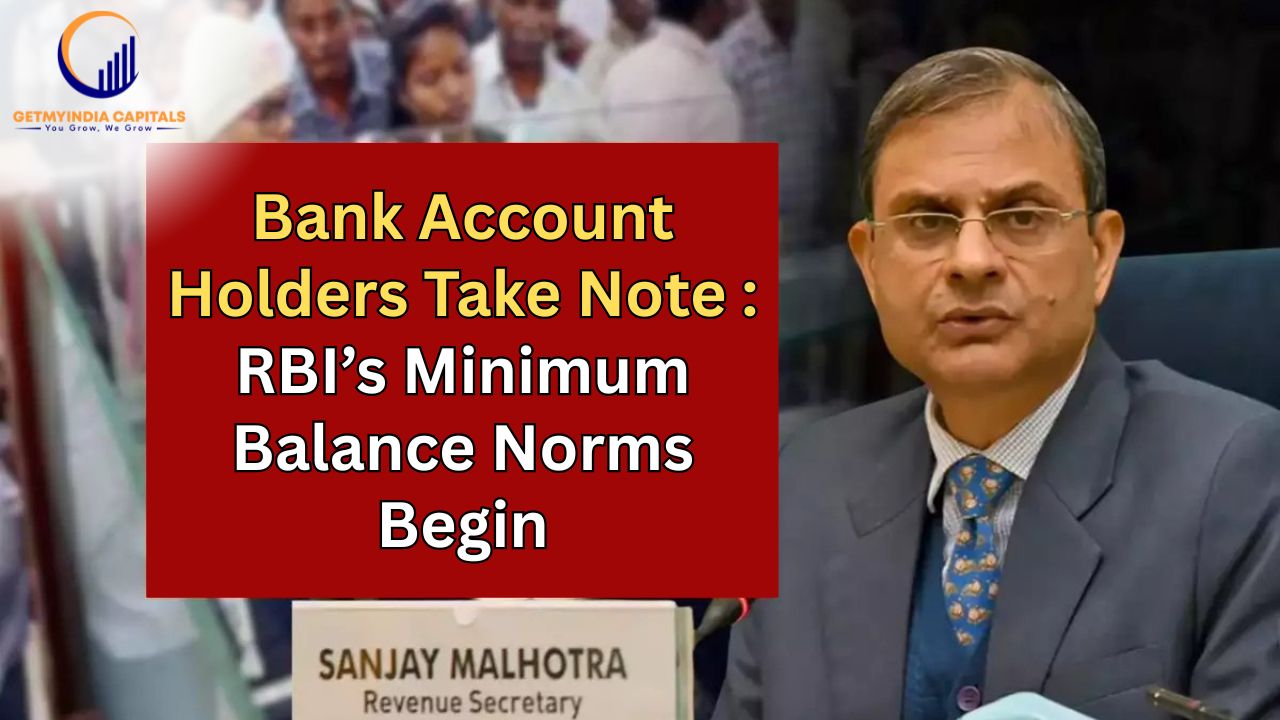Introduction
RBI New Rules-You must be knowing that it is necessary to maintain a minimum balance in the bank account. For this, many types of rules (Rules for no minimum balance) are already applicable, but now the Reserve Bank of India has made new rules by changing these rules. Customers also suffer financial loss due to not maintaining the minimum balance. Instructions to implement these new rules by the banks have also been given by RBI (Reserve Bank of India). Know in detail in the news, what effect will the implementation of these rules have on the customers.
These rules have been implemented by RBI
There are many banks across the country, in which the minimum balance limit has been fixed. This limit is different in banks located in rural and urban areas. Now RBI has fixed new rules regarding this. According to RBI, if an account is inoperative for two years, that is, it is closed and there is no minimum balance in it, then no penalty will be imposed by the bank. As per the rules, if no transaction is done from an account for 2 consecutive years, then that account becomes inactive.
What Bank Customers Need to Know ?
Reserve Bank of India (RBI) new rules concerning the minimum balance requirement in savings accounts. Under the revised guidelines, banks are now required to standardize minimum balance amounts and associated penalty charges across customer segments. This move aims to increase transparency and protect customers from arbitrary fees. Banks must inform account holders in advance about the balance shortfall and provide a grace period before levying any penalty. Additionally, the charges must be reasonable and not exceed the actual cost incurred by the bank. Customers are advised to check with their respective banks for updated balance criteria and avoid unnecessary penalties.
Bank customers can complain here
If a bank imposes a penalty (Penalty on not maintaining minimum balance) even on an inactive account, then the customer can contact the bank and put forth his point and ask the bank the reason for imposing the penalty. Apart from this, the account holder (Account Closed Rules) can complain to the board of the bank. If your complaint is ignored at both the bank and board level, then you can register a complaint on the complaint redressal portal on the official website of RBI and request for a solution.
Rules regarding scholarship accounts
The Reserve Bank of India (RBI rules for inoperative accounts) has clearly stated in its rules that apart from inoperative accounts, banks cannot charge any minimum balance charge on accounts created for scholarship amount or direct benefit transfer.Whether these accounts have been used for more than 2 years or not.
These accounts will not be considered inactive
There are separate rules regarding savings account. Even after such account becomes inactive i.e. even if there is no transaction for two years, banks will have to keep paying interest. Apart from this, even if there is zero balance in government scheme accounts, they will not be kept in the category of inactive accounts. Banks cannot charge any penalty or charge for not maintaining minimum balance in these accounts.
RBI implemented the rules for this reason
The Reserve Bank of India has implemented these rules to reduce unclaimed accounts and unclaimed amount in banks. According to the circular of RBI (RBI update), after the implementation of these instructions, now such unclaimed amount (unclaimed amount rules) deposited in the banking system of the country can be reduced. Not only this, now the unclaimed deposited amount can be returned to the right owners and claimants.
How the New Minimum Balance Rules Affect You ?
The RBI’s new rules, effective from the 1st, directly impact how banks handle minimum balance requirements in savings accounts. Banks must now clearly notify you when your balance falls below the required limit, giving you time to restore it before any penalty is charged. The penalties, if applied, must be proportionate and reflect the actual cost to the bank. This ensures you’re not unfairly charged. Also, minimum balance thresholds are to be more standardized, reducing confusion. As a customer, it’s now easier to understand your obligations and avoid hidden fees.
Conclusion
The RBI’s new rules on minimum balance requirements, effective from the 1st, mark a step toward greater transparency and fairness in banking. By mandating clear communication, reasonable penalties, and standardized practices, the RBI aims to protect customers from unexpected charges and promote better financial awareness. Account holders should stay informed about their bank’s updated policies and maintain the required balance to avoid any penalties. Overall, these changes are expected to make banking more customer-friendly and accountable.
GetMyIndia.com RaysVeda.com GetMyStartup.com LawCanal.com ABHAYRAY.COM ZinCob.com

